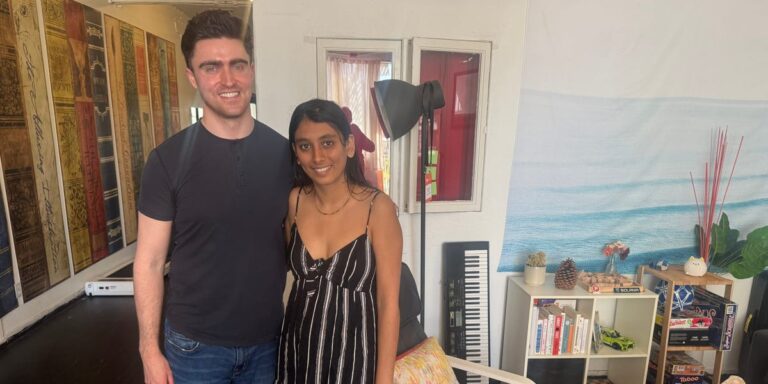Mission Control: San Francisco’s No-Frills Hacker House
The Essence of Mission Control
While many hacker houses in San Francisco are marketed with luxurious amenities and extravagant environments, Mission Control takes a markedly different approach. Located in the heart of the Mission District, this house prioritizes a straightforward, communal way of living, emphasizing grit and determination among its residents.
Conor Brennan-Burke, a current resident, articulates the ethos of the house with the remark, “It is not the Four Seasons. We select for people who have grit.” This sums up the culture that defines Mission Control, where simplicity fosters creativity, collaboration, and ambition.
A Glimpse Inside
Upon entering Mission Control, the first requirement is to remove one’s shoes, a policy that symbolizes the house’s informal, homely approach. Lisa Shmulyan, a resident since 2020, recounted her determination to join the community, stating that she lived in a tent in the living room for a month while waiting for room availability.
“There was someone living in the closet, someone else on the patio in a shed,” Shmulyan shared. “But it didn’t matter. You’re surrounded by people doing incredible things. That energy is hard to find anywhere else.” This sense of community is bolstered by the fact that all decisions about the living space, including furniture and events, are made by resident votes.
From the Ground Up
Founded in 2013 by a group of former Thiel fellows, Mission Control has managed to thrive despite competition from newer, more lavish organizations. As of now, it operates as a commune that emphasizes peer support and shared success. Throughout its history, residents have collectively raised over $2 billion and have generated companies valued at over $200 billion.
Among its notable alumni are the co-founders of Hightouch, an AI marketing firm that achieved an $80 million funding success, and Marty Kausus of Pylon, indicating the caliber of talent that has passed through its doors.
Community and Cost
The appeal of Mission Control extends beyond its supportive environment; it also offers financial advantages. Rent for a room is approximately $1,600, significantly lower than typical costs for a one-bedroom apartment in San Francisco. This affordability continues to attract residents, many of whom opt to remain even after securing substantial funding for their ventures, valuing the strong sense of community.
Shmulyan notes, “This is a house where people are doing their life’s work, and doing it side by side with each other.” This shared experience of entrepreneurship is not just about work; it fosters lasting connections among residents, many of whom believe they will be at each other’s weddings and IPOs.
The Space and Its Culture
The interior of Mission Control mirrors a lively communal atmosphere, with a mix of old furniture and shared spaces reminiscent of a college house. However, unlike typical party environments, this space is characterized by a sober dedication to productivity, with residents often seen coding and collaborating in a clean, organized environment.
“It’s not a party house,” Brennan-Burke states. “We drink tea, build stuff, and hang out.” This focus on meaningful engagement is further complemented by a strict no-influencer policy, ensuring that all members share a commitment to authentic endeavors rather than seeking validation through social media presence.
Joining the Mission
Entry into Mission Control does not follow a conventional application process. Instead, prospective residents must be vouched for by current members, with a rigorous interview process that only allows around 3% of applicants to succeed. The evaluation criteria prioritize character and compatibility over project specifics.
“People have moved here with nothing,” Brennan-Burke explains. “They had no idea, no cofounder. Just ambition. That’s what we select for.” This focus on authentic ambition plays a crucial role in the community’s integrity.
The Future of Mission Control
Recently, Mission Control expanded by opening a “Satellite” for shorter-term stays, allowing newcomers to determine their fit within the community. Moreover, residents have initiated a new venture fund, Mission Street Capital, aimed at supporting fellow innovators, highlighting the ongoing commitment to fostering entrepreneurial growth.
COVID-19 has reinforced the value of such communal living arrangements, with residents noting that the pandemic heightened the demand for spaces that promote connection and collaboration. As one resident aptly puts it, “Even in this world of tech and AI, you cannot replace human connections.”



